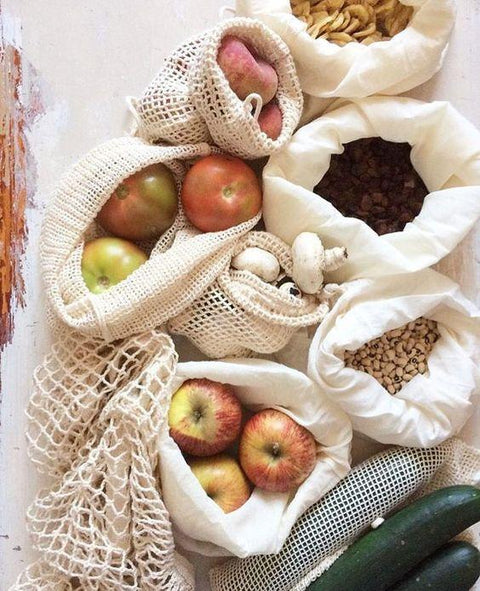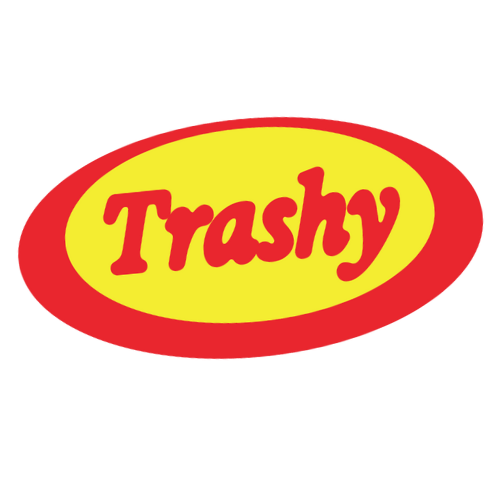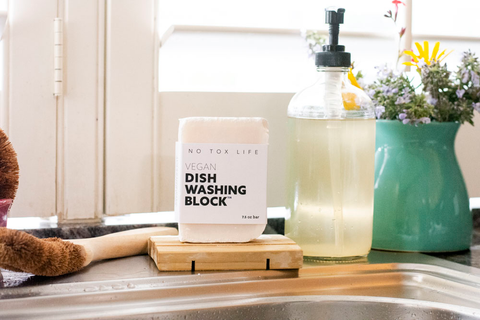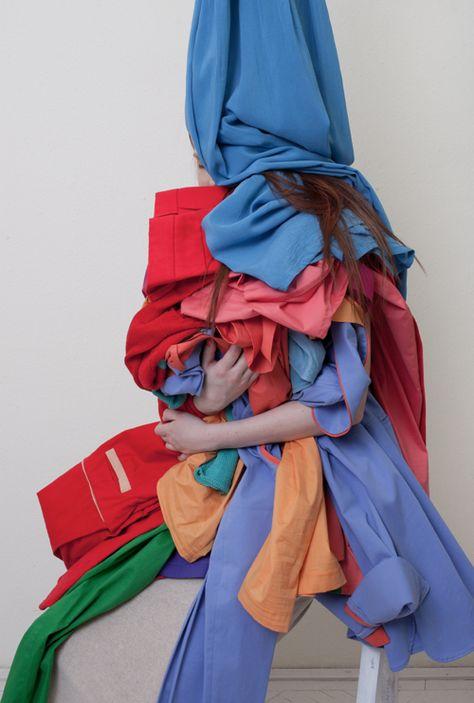
Interview with Bea Johnson
Author of "Zero Waste Home"
About Bea: Bea Johnson and her family adopted a zero waste lifestyle a decade ago; their household produces a mere pint of trash per year. With her blog and bestseller Zero Waste Home (translated in 21 languages, #1 on Amazon waste cat.), Bea initiated a global movement and continues to inspire a growing community to live simply and take a stance against needless waste. Her methodology is based on 5R's: “Refuse, Reduce, Reuse, Recycle, Rot, and only in that order”. She shatters misconceptions, proving that zero waste can not only be stylish, but also lead to significant health benefits, and time and money savings. She speaks at universities, corporate events and conferences all over the globe, including Google, Pixar, Adobe, TEDx, the European Parliament and the United Nations. She has completed eleven international tours and given 200+ speeches in 35+ countries on 6 continents. She has appeared on TV shows and in publications everywhere, including The Today Show and People Magazine. Passionate and optimist, she was dubbed "The Priestess of Waste-Free Living" by the New York Times and is the leading spokesperson for the zero waste lifestyle. She is a Grand Prize winner of The Green Awards, and a French native who currently lives in Mill Valley, California.
Guilia: First off, could you tell me a little bit about your personal journey. What inspired you to go zero waste? How did that lifestyle change propel you towards a full-blown career as an incredibly successful public speaker and proponent of the zero-waste lifestyle?
Bea: “In 2006, my family was living in a neighborhood outside of San Francisco and having to get in a car to go to the grocery store, school, and restaurants. We missed the life we had lived in cities like Amsterdam and Paris, so we decided to move into the city so that we could have more amenities within walking or biking distance. Before finding the right house, we rented an apartment for one year and we only moved in with the necessities, putting the rest in storage. What we discovered during that year is that when you live with less, then you have more time to do what’s important to you. More time for friends and family and hikes and picnics. So when we found the right house, we took everything out of storage and let go of about 80% of the belongings that we didn’t even miss over the course of that year. It is thanks to that simplicity that we found we had more free time to watch documentaries and read books about environmentalism and zero waste. It made my husband and I sad to think about the future we were leaving for our children, and that gave us the motivation to change our ways. At first we watched our energy consumption, then our water consumption, and then started noticing our trash. I ran into the term ‘zero waste’ and though that’s what we should be doing. At the time, there were no books or blogs about how to live a zero waste lifestyle so I had to test a lot of things, google alternatives, call my mom and grandma to ask how they did it in the old days. We had to test a lot of extremes, but eventually we found the balance and alternatives that we could see ourselves doing in the long run.”
"I propose a methodology of 5 R’s: refuse, reduce, reuse, recycle, and rot."
Bea Johnson
Guilia: Were there any changes you made to adopt a more sustainable lifestyle that were surprisingly easy?
Bea: “It was hard to find a balance between what worked and what didn’t, but some alternatives were certainly easier than others. For example, swapping paper towels for rags. It saves time and is so much easier. The menstrual cup is also one of those things that I regret not doing earlier. It saves so much money and is so much easier when I travel. It’s totally worth the investment!”
Guilia: In one of your blog posts , you mention that the #1 rule of living a zero waste lifestyle is to refuse, refuse, refuse. Could you tell me a bit about this rule and how people like myself can begin to adopt it as well?
Bea: “Today, in this consumerist society, we are the targets of many many promotional and free goods. Everytime we accept them we are not only creating a demand to produce more but also once we accept these things they create clutter and become a trash problem. If we learn to say no we can stop a lot of things from entering our home and creating trash. Its very easy to simply refuse single use plastic, business cards, junk mail, and freebies you get at conferences if you just learn to say no on the spot. You can simply take on some sentences that you feel comfortable using. I personally just say: “no thanks, I don’t need it.” People respect that and then they simply don’t give it to you.”
Guilia: In one of your Ted Talks you speak about how going zero-waste is about recycling less, rather than more. Can you elaborate upon what this means?
Bea: “There is a lot of emphasis being put on recycling, especially in San Francisco. Unfortunately, there is very little work being done to prevent waste from being created in the first place. Zero waste is about preventing waste from coming into our home in the first place. Recycling requires energy and relies on way too many variables. In order for it to really work you must have manufacturers creating products that are actually recyclable. It also relies far too much on the consumer knowing how to properly sort their recyclables. In the end, a lot of material gets lost or mistreated. If you adopt a zero waste lifestyle, this problem will be solved because you will have to recycle less.”
Photo Credit: Stephanie Rausser
Guilia: What advice do you have to offer to people who are just beginning to try to live a more waste-free lifestyle? What do you wish someone had told you when you first began this journey?
Bea: “I propose a methodology of 5 R’s: refuse, reduce, reuse, recycle, and rot. Most importantly, refuse the things you do not need. Secondly, reduce the things you do actually need and let go of things you don’t need. Next, swap disposables for reusables. Then recycle only what you cannot refuse, reduce, or reuse. Lastly, rot. This means that you compost everything else including food, nails, hair, and floor sweepings.”
Guilia: Do you have any recommendations for people who face limitations to going zero waste… for example, people who can’t always shop in bulk or who rely on packaged foods on-the-go?
Bea: “I actually created a “bulk finder” on my website. It allows the zero waste community to share bulk locations that it has found around the world. However, bulk is not just what you may find at a health food store. Bulk also includes shopping at your local butcher, winery, olive oil press, and the local ice cream shop. I consider everything that is sold unpackaged to be bulk. Once you adopt a zero waste lifestyle and vouch to reduce your use of packaging you will acquire a selective vision for unpackaged goods.”
The trash produced by Bea's family in 2017. C redit: ZeroWasteLiving.com
Guilia: What are a few simple, affordable changes that almost anyone could do immediately to reduce their waste production?
Bea: “The first thing you can do is learn to say no. Secondly, go into your home and let go of all the things you do not truly need. When you let go of these things, you make them available for your community and for the second hand market, which is very important for the future of zero waste. Then I would move on to reusing. A few very easy swaps are to swap rags for paper towels, handkerchiefs for tissues, a metal or wooden scrubbie instead of sponges, double edged razor instead of disposable plastic razor, and menstrual cup instead of pads and tampons. You can also replace all of your cleaning products with white vinegar and baking soda.”
Guilia: Personally, I have found that it can be very disheartening to see how much trash people produce and how little they are aware of their impact on the environment. How do you stay hopeful and steadfast toward your dedication of being zero waste despite this?
Bea: “Once you begin changing your lifestyle then you begin noticing the wasteful practices of others. It is easy to become judgemental of and disappointed by the actions of others. However, I found that once I reached a level of personal waste production that I felt happy with, I then found peace with other people. I realize that I have no right to judge others, especially because I was once just like them. Once you have done everything you can at your own personal level, then you will find peace with others. You will also find that what you are doing has the power to inspire others. Every time you bring a reusable cup to the coffee shop or a reusable bag to the grocery store, you have the power to inspire others to do the same.”
Once you have done everything you can at your own personal level, then you will find peace with others. You will also find that what you are doing has the power to inspire others. Every time you bring a reusable cup to the coffee shop or a reusable bag to the grocery store, you have the power to inspire others to do the same.”
Bea Johnson
Photo Credit: ZeroWasteHome.com





